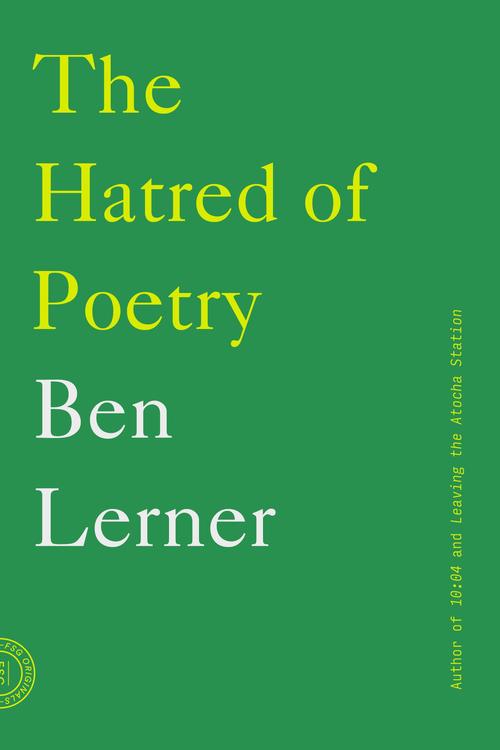
Ben Lerner hates poetry, as indeed he believes we all do. But if hating poetry sounds dangerously philistine, do not worry. Ben Lerner hates poetry in a way that tracks the theories of the late poetry critic Allen Grossman, no less. Ben Lerner believes that each poem is really just an attempt to realize some more perfect and higher version of itself. The fact that we hate a poem is due to the great gulf between what we see on the page before us, and our intuitive understanding of what that poem should be. Any complaint you have about poetry is due to our inability to realize the perfection every poem grasps at, because that perfect poetry would have addressed whatever your complaint was.
If this argument seems vaguely familiar, it might be because it is not dissimilar to the Tenacious D song Tribute, in which the hapless comedy rock duo ward off a demon by playing the first thing that came into their head, which just so happened to be “The Best Song in the World”. Having escaped the demon, the duo try to recreate the song that had saved them, but fail. Thus they are left playing a tribute to that song, to stadiums full of fans.
There are a startling number of published reviews of Lerner’s short monograph, but I don’t think any of them have addressed the key problems with Lerner’s argument as far as I see them. The first is that there really isn’t a Platonic idea out there for each poem. Indeed, I suspect Lerner doesn’t even really believe this, much like Tenacious D didn’t really encounter a demon – it’s all just some fun bullshit to hang your hat on. The second problem is that even if we accept that no poem is perfect, that doesn’t explain why people should hate a poem. People like all kinds of imperfect creative work. This leads to the final serious issue: it isn’t clear why poetry in particular is stuck with particular problem, while other art forms seem to be fine.
I think that the real reason people hate poems – or at least a great many that they encounter – is that poems are too often pretentious little crossword puzzles with vague clues and no answers. To the casual reader it seems that most poetry written today have abandoned meter and rhyme, replacing them with obscurity and grammatical violation. Poetry written before the modernist revolution have buckets of meter and rhyme, but unfortunately suffer from archaic language and references that have lost meaning.
Lerner’s argument is well laid out and engagingly written. He discusses compelling examples of poetry (both good and bad) and might even serve as a nice introduction to poetry for certain readers. It is notable that when he discusses William Topaz McGonagall’s execrable “The Tay Bridge Disaster” his analysis draws upon a knowledge and intuition of the classic poetic form. His point is compelling when he talks of the desperation of the unpublished poet to get published, not even that they might earn any money, but out of a desire for validation. But it seems Lerner wants to avoid the argument that a decline in poetry might be due to modernism abandoning rather than evolving those forms.
Something happened to poetry, and it is the great literary whodunnit of the 20th century to identify the culprit. There is a hatred of poetry – a general aversion to the stuff – that we want to see addressed. It attracts conspiracy theories and crankery galore. Perhaps it is to Lerner’s credit that he doesn’t even try to address it.